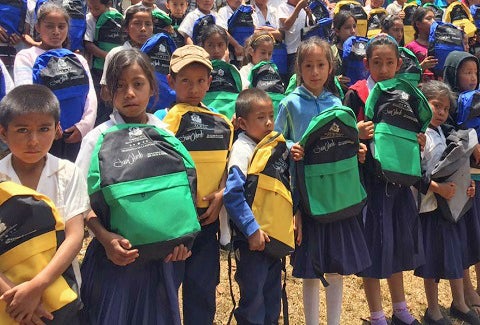A successful strategy to reduce poverty in developing nations has been the use of conditional cash transfer (CCT) programs.
CCTs attempt to reduce poverty while also changing behavior and building human capital by providing families with cash in exchange for certain requirements, such as enrolling their children in school.

These incentives have been employed effectively to boost school enrollment and attendance, decrease child labor, and encourage the use of preventive health services.
In Honduras, the Inter-American Development Bank (IDB) has been the main financial and technical partner of a CCT known as Bono Vida Mejor (formerly Bono 10,000).
Since its inception in 2010, Bono Vida Mejor has benefited 350,000 households. It has contributed to reducing the poverty rate in Honduras and moderately improved school attendance and the rate of health clinic visits for children under 3.
Notwithstanding its achievements, Bono Vida Mejor, like many other CCT programs, spends considerable resources in order to guarantee the compliance of beneficiaries.
For program managers, ensuring that each and every family receiving cash actually sends their children to school and to a health clinic is administratively and financially burdensome. This has led to a vigorous policy debate.
Is it really necessary to monitor and enforce compliance of conditions to achieve results? Or is there a better way?
A complexity of Bono Vida Mejor, common to all CCTs, has to do with its heterogenous impact on families.
A cash transfer may be more than enough to change the behavior of some families who want to enroll their children in school or send them to a health clinic; however, other families may have different constraints or priorities.
Even the extra cash may not be enough to convince them of the importance of educational and health opportunities. For this second group, verifying requirements for the cash transfer is important to achieve the desired change in behavior.
Bono Vida Mejor reduced the cost of monitoring compliance by loosening some of the conditionalities. They preserved the original idea of the CCT, but required verification of the conditionalities for only one child per household.
Households were given a transfer of $500 per year if at least one child between 6 and 18 enrolled in and regularly attended school. Meanwhile, households that had children only under 6 were paid $250 per year if only one of them regularly visited a health center.

The hope was that beneficiary households would not reduce human capital investments in siblings.The approach made the verification process easier. It reduced the number of children for which conditionalities had to be monitored—and it did so in a context in which monitoring and reporting systems still face multiple challenges and are only starting to become fully functional.
The IDB implemented a randomized evaluation at the village level.
In all, 2,221 of the poorest households within treatment villages that received the cash transfer were selected for the treatment sample. Unfortunately, the evaluation found that the decreased monitoring also diminished the program’s impact on the use of education and health services.
In beneficiary households with only one child, children between 6 to 18 years old were, on average, 8 percentage points more likely to be enrolled in school and 6 percentage points less likely to be working. In contrast, in those with more than one child in that age group, the program had no significant impact on school enrollment or child labor.
Similarly, in households with only one child, children under 6 were 7 percentage points more likely to have complied with the latest required check-up. However, in those with an older sibling, the program had no significant impact on health center visits.

The implications are clear—at least for the Honduran context. Requirements or conditionalities matter. So does the rigor with which verification is conducted.
That may mean that sizable human and financial resources and complex operational arrangements may have to be imposed to make a CCT work. It also may mean that the education and health sectors must invest more in their information systems so that they can automatically and reliably produce data on compliance.
The Honduran government is currently working to redesign its payment transfer system so that conditionalities are monitored separately for each child in a household and payment is disbursed according to individual behaviors.
If it can do that in tandem with improved information systems, it might just realize the enormous benefits in education and health to which the program aspires. With such systems in place, CCT managers may find that enforcing conditionalities is easier and cheaper.

This story is part of our impact evaluations included in the document: Development Effectiveness Overview, a publication that that highlights the lessons and experiences of IDB projects and evaluations.
– Using job training to prevent teen pregnancy in the Dominican Republic
– Improving the quality of life of senior citizens
– Short-term triggers of agricultural productivity in Bolivia


Leave a Reply